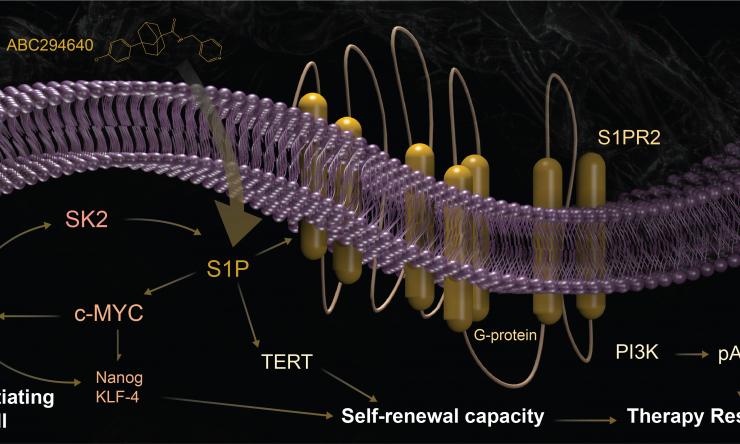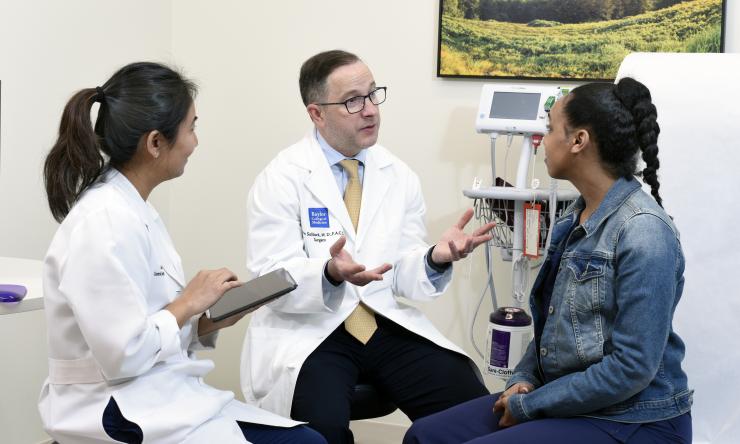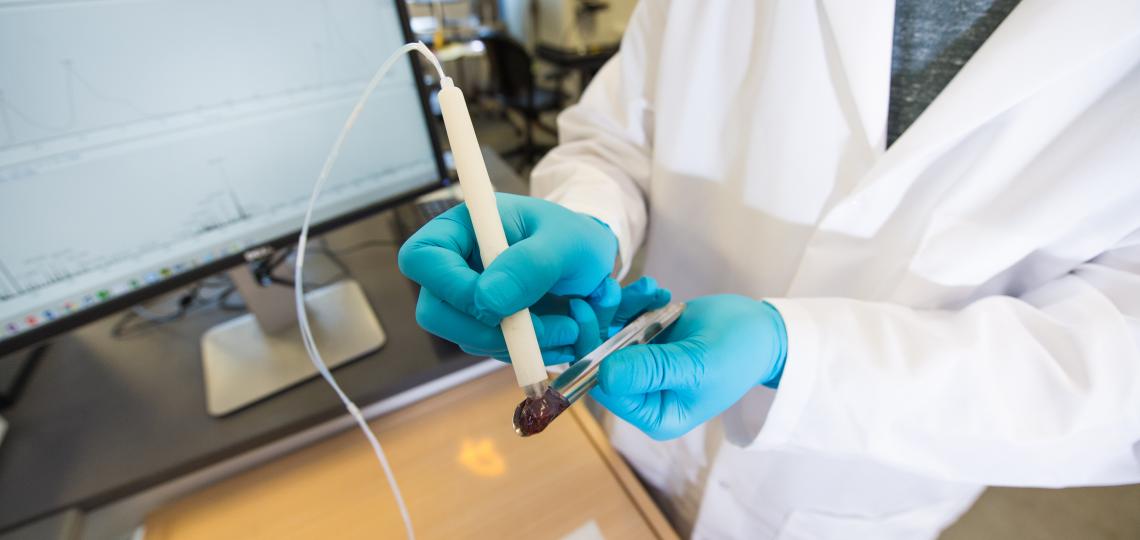
Division Highlights
- The GI Surgery program achieved a “Best Performing” rank in U.S. News & World Report, and all our eligible procedure and diagnosis areas received the highest applicable rating of “High Performing”
- Surpassed 400 trans-oral thyroid procedures and 100 thyroid ablation procedures, one of the largest such programs in the United States
- First program in Texas to offer thyroid artery embolization for treatment of thyroid tumors
- VA program is first in the country to be recognized as National Pancreas Foundation Centers of Excellence
- Dr. Atif Iqbal launched a first-of-its-kind “IIT” chemoimmunotherapy trial (NICER trial) for primary colon cancer
- Launched new endocrine fellowship, offering training in advanced trans-oral thyroid surgery
Chief's Message
View a message from the Division of Surgical Oncology Chief, E. Ramsay Camp, M.D.
Education
Our residents are exposed to a broad range of clinical opportunities at a total of six major hospital affiliates.
Research
Explore clinical and basic science research from the Division of Surgical Oncology.
Healthcare
Explore Surgical Oncology healthcare specialty areas from the division.








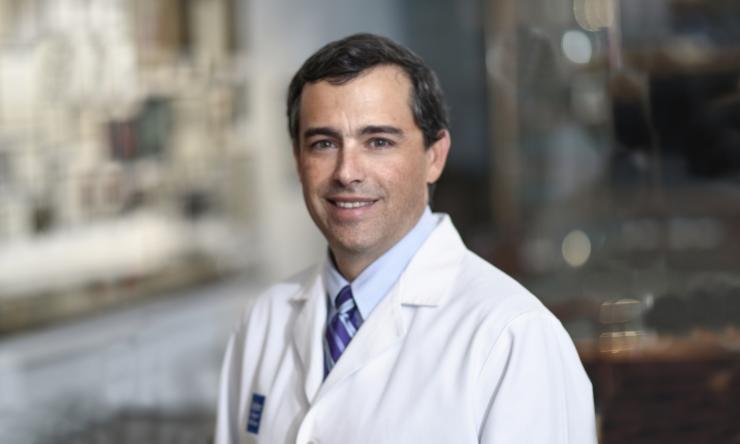
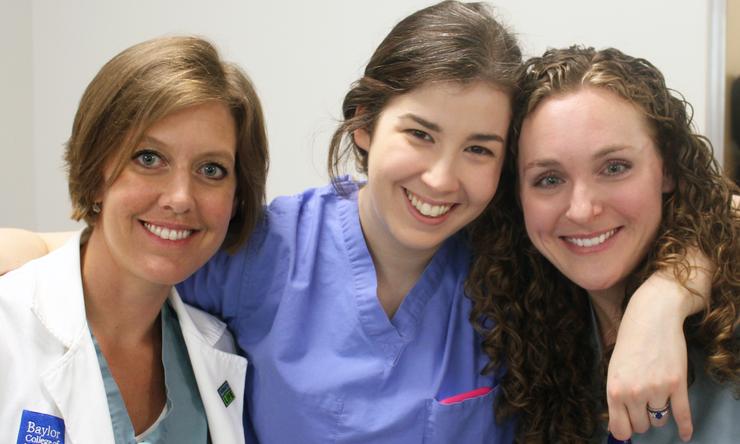
 Credit
Credit